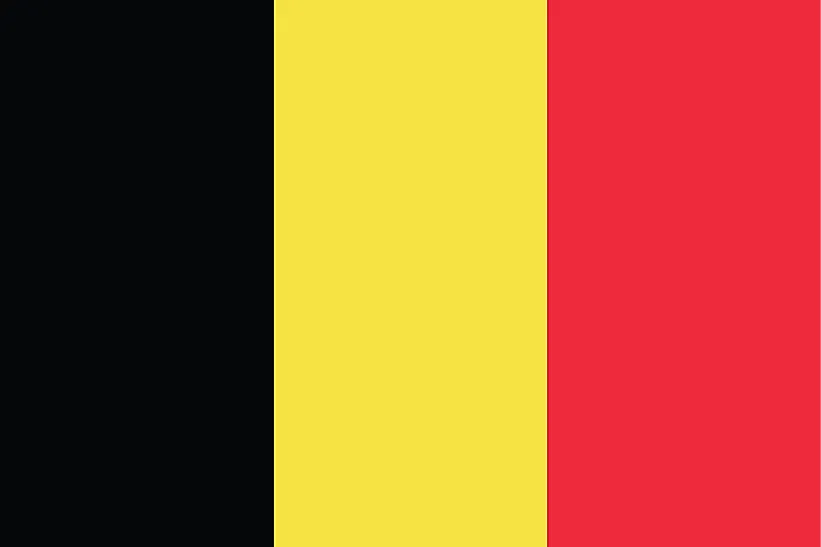
Belgium
| Continent | Europe |
| Capital | Brussels |
| Population | 11,409,077 |
| GDP | $509.00 Billion |
| GDP per Capita | $44,900 |
| Dialing Code | +32 |
| ISO Code (2-letter) | BE |
| ISO Code (3-letter) | BEL |
About Belgium
Welcome to Belgium, a country where medieval charm meets modern European dynamism. Located at the heart of Western Europe, this nation of approximately 11.5 million people occupies just 30,528 square kilometers, making it one of Europe’s most densely populated countries. As the host of major European Union institutions, Belgium combines its rich historical heritage with its role as a center of international diplomacy and commerce.
Geographic Features and Natural Beauty
Belgium’s geography is characterized by three distinct regions: the coastal plain in the northwest, the central plateau, and the Ardennes uplands in the southeast. The country’s landscape varies from the flat, canal-laced fields of Flanders to the rolling hills and dense forests of Wallonia.
The North Sea coastline stretches for 67 kilometers, featuring popular resort towns and wide sandy beaches. The Ardennes region offers dramatic river valleys, dense forests, and caves, providing excellent opportunities for outdoor activities like hiking, cycling, and rock climbing.
The country’s extensive network of rivers and canals, including the Meuse and Scheldt rivers, has historically played a crucial role in transportation and commerce. These waterways continue to be important for both commercial and recreational purposes.
Cultural Heritage and Traditions
Belgian culture is a fascinating blend of Germanic and Latin influences, reflected in its three official languages: Dutch (Flemish), French, and German. This cultural diversity has created a rich tapestry of traditions, arts, and customs that vary by region while maintaining a distinctly Belgian character.
The country is renowned for its artistic heritage, from the Flemish Primitives to Art Nouveau architecture. Cities like Bruges, Brussels, and Ghent showcase perfectly preserved medieval architecture, while the country’s comic strip tradition has earned Brussels the nickname “Comic City.”
Belgian cuisine is celebrated worldwide, particularly for its chocolate, waffles, fries, and beer. The country produces over 1,500 types of beer, with many breweries maintaining centuries-old traditions. Belgian chocolate-making is considered an art form, with more than 2,000 chocolate shops throughout the country.
Historical Journey
Belgium’s history spans from ancient Roman settlements through medieval trading cities to its modern role as a European capital. The region has been a crossroads of European power and culture for centuries, controlled at various times by Spanish, Austrian, French, and Dutch rulers before gaining independence in 1830.
The country played significant roles in both World Wars, with the Battle of Waterloo and the Battle of the Bulge leaving lasting marks on its landscape and national consciousness. After World War II, Belgium became a founding member of both NATO and the European Economic Community (predecessor to the EU).
Modern Economic Landscape
Today’s Belgium is a highly developed, export-oriented economy with a focus on services, technology, and manufacturing. The country’s strategic location and excellent infrastructure have made it a logistics hub for Europe, with the Port of Antwerp being one of the world’s largest.
Brussels serves as the de facto capital of the European Union, hosting major EU institutions and numerous international organizations. This has created a thriving diplomatic and business community, contributing significantly to the service sector.
The country maintains strengths in various industries, including biotechnology, chemicals, pharmaceuticals, and diamond trading, with Antwerp handling approximately 84% of the world’s rough diamonds.
International Relations and Global Position
Belgium plays a central role in international affairs as the host country for both the European Union and NATO headquarters. The country is a strong advocate for European integration and multilateral cooperation, actively participating in various international organizations and peacekeeping missions.
Did You Know?
• Belgium holds the world record for the longest period without a government (589 days in 2010-2011)?
• The country has more castles per square kilometer than any other country in the world?
• French fries were actually invented in Belgium, despite their name?
• The world’s first stock exchange was established in Antwerp in 1531?
Conclusion
Belgium stands as a unique example of how different cultures and communities can coexist and thrive together. From its medieval cities to its modern institutions, from its artistic masterpieces to its culinary delights, Belgium offers visitors and residents alike a rich tapestry of experiences. As it continues to evolve in its role as the heart of European integration, Belgium maintains its distinctive character while embracing its international significance.





